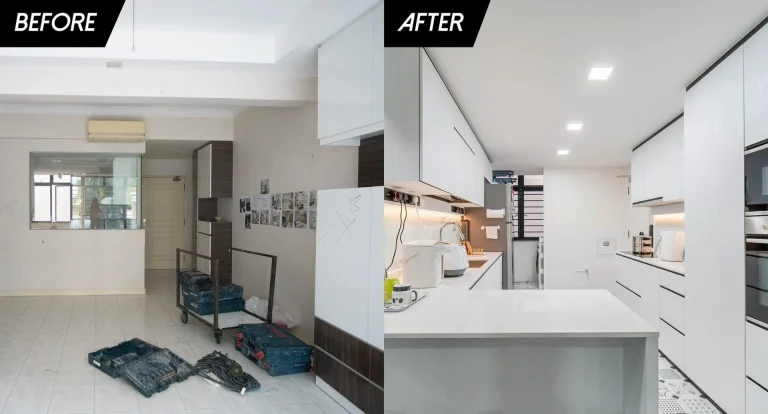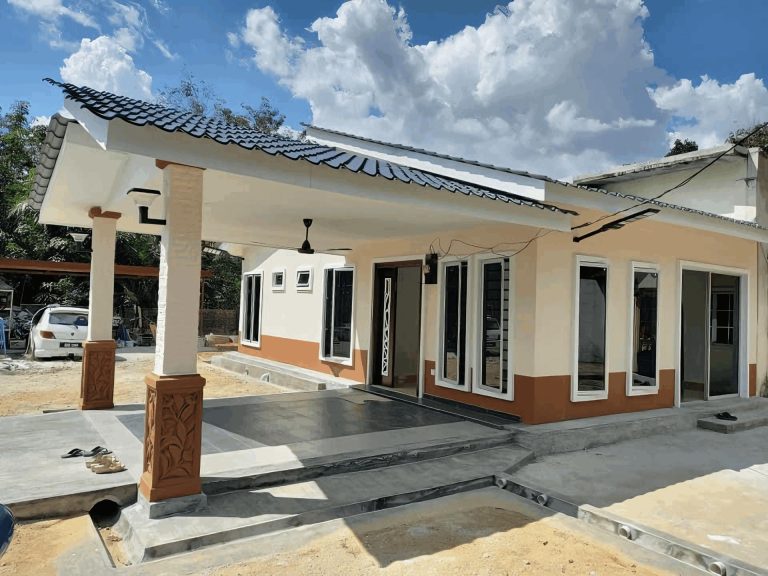When it comes to making big life choices, few decisions are as monumental as picking a mortgage. It’s a bit like choosing a partner in life – one moment you’re full of dreams and hopes, and the next, you’re knee-deep in paperwork and commitment. Just like a bad relationship can leave you feeling trapped and overwhelmed, a wrong mortgage can land you in a financial mess that feels impossible to escape. In this article, we’re going to dive into the parallels between these two significant decisions. So whether you’re a first–time homebuyer or just contemplating a mortgage refinance, join us as we unpack the reasons why choosing the right mortgage can mean the difference between a happily ever after and a financial heartache. Let’s explore how to ensure you’re not just signing on the dotted line, but doing it with the right fit in mind. After all, you deserve a mortgage that makes you feel secure, just like the right partner should!
Understanding Compatibility: Finding the Right Mortgage for Your Lifestyle
When you’re diving into the mortgage world, it’s essential to realize that not every option fits like a glove. Just as you wouldn’t settle for someone who doesn’t share your values or goals in a relationship, the same goes for choosing a mortgage. You need to consider not just the interest rate, but also your current lifestyle and future aspirations. Think about whether you’re a homebody who needs stability or a wanderer looking for flexibility. Each mortgage type caters to different needs, and aligning them with your life is crucial.
Imagine the scenarios:
- Fixed-rate mortgages: Ideal for those who crave predictability in their monthly payments.
- Adjustable-rate mortgages: Perfect for the adventurous souls who want to take advantage of lower initial rates – but be mindful, as they can fluctuate over time.
- Government loans: A go-to for first-time buyers seeking support and safety nets.
Creating a compatibility chart could help clarify your options. To give you an idea of how to weigh your choices, here’s a simple comparison:
| Mortgage Type | Best For | Pros | Cons |
|---|---|---|---|
| Fixed-rate | Stability Seekers | Predictable Payments | Higher Initial Rates |
| Adjustable-rate | Risk Takers | Lower Initial Payments | Potential Rate Increases |
| Government loans | First-time Buyers | Lower Down Payments | Strict Qualifying Criteria |

Identifying Red Flags: Warning Signs of a Bad Mortgage Choice
Finding the right mortgage can feel a lot like searching for the perfect partner in life. Just as you wouldn’t ignore the early warning signs in a relationship, you should be on the lookout for red flags in mortgage agreements. High fees and unexplained charges may seem innocuous at first but can quickly balloon your costs. If a lender is ambiguous about their fees or takes a long time to provide a breakdown, it’s a clear sign to pause and consider your options. Remember, you want a mortgage that supports your dreams, not one that leaves you financially shackled.
Another significant red flag is an offer that feels too good to be true. If a lender promises rates that are significantly lower than the market average, it’s time for a reality check. You might be entangled in deceptive practices that lead to ballooning payments later on. Always compare multiple offers and look for transparency in the terms. If your lender isn’t willing to lay it all out, they might be hiding something beneath the surface.
Lastly, be wary of contracts that lack flexibility. A rigid mortgage can turn into a stressful burden if your circumstances change. Life is unpredictable, and so should be your mortgage terms. Pay attention to the prepayment penalties and other restrictions that could lock you in. Just like a partnership, your mortgage should have room for growth and adaptation, ensuring that you can navigate life’s twists and turns without breaking a sweat.

The Financial Commitment: Weighing Long-Term Implications
When you decide to take on a mortgage, it often feels like a lifelong commitment—much like a marriage. You may be enticed by the shiny offers and sweet promises, but it’s crucial to look beyond the bloom of initial excitement. This commitment can shape your financial reality for years to come, deeply affecting everything from your savings to your social life. Issues like interest rates, loan terms, and hidden fees can introduce complications that will linger longer than you might initially realize.
Consider the following factors that can influence your long-term financial stability:
- Interest Rates: These can fluctuate and drastically change your monthly payments over time.
- Loan Duration: A shorter term usually means higher monthly payments but less interest paid in the long run.
- Fees and Penalties: The fine print might reveal costs that can hit hard when you’re least prepared.
To illustrate the potential pitfalls, here’s a simple breakdown of a scenario involving two types of mortgages:
| Feature | Fixed-Rate Mortgage | Variable-Rate Mortgage |
|---|---|---|
| Initial Interest Rate | Stable | Fluctuates |
| Monthly Payments | Consistent | May Increase/Decrease |
| Long-Term Security | High | Variable |
In the grand scheme, your mortgage is not just a loan; it’s a crucial part of your identity as a homeowner. Make sure to look beyond the immediate perks and think about how this financial choice will echo through your life. Just as with a partner, aligning your values and future goals with your mortgage choice will help ensure a harmonious journey. Remember, the right mortgage can lead to happiness, while the wrong one might just be a long, bumpy road.

Navigating the Emotional Landscape: Mortgage Decisions and Stress Levels
Choosing a mortgage is a significant decision, much like finding a lifelong partner. It’s not just about crunching numbers or the interest rates; it’s also about how it makes you feel and the stress it might bring into your life. Getting locked into the wrong mortgage can leave you feeling trapped, just like being in an unhealthy relationship. Imagine feeling anxious every month as you watch your budget get tighter. It’s vital to consider how different mortgage options might stack up in terms of emotional weight.
When you’re in the mortgage process, it’s easy to get swept away by flashy deals and enticing offers, similar to the allure of a charming partner. However, if you overlook the fine print, the initial excitement could quickly turn into a long-term burden. Think about these aspects while making your decision:
- Rate Type: Fixed vs. Variable
- Loan Duration: 15, 20, or 30 years?
- Hidden Costs: Fees and penalties that might pop up
- Your Financial Future: Will this help or hurt your overall financial health?
To help you navigate the maze of mortgage options, consider creating a simple comparison table. This way, you can visualize and weigh your choices effectively:
| Mortgage Type | Interest Rate | Monthly Payment | Flexibility |
|---|---|---|---|
| Fixed Mortgage | 3.5% | RM1,900 | Low |
| Variable Mortgage | 2.8% | RM1,700 | High |
| Hybrid Mortgage | 3.0% | RM1,800 | Medium |
By evaluating these elements and recognizing the emotional impact of your choices, you can foster a sense of control and security, easing the stress that often accompanies such pivotal decisions. Just remember, you want to choose a mortgage that complements your life, not one that adds unnecessary tension.

Pre-Approval Process: Ensuring a Strong Start to Your Financial Journey
When it comes to your financial journey, securing pre-approval is like getting to know your partner before saying “I do.” It lays the groundwork for a solid relationship with your lender and helps you understand exactly how much you can afford. This step is crucial—it boosts your confidence when house hunting and blows away the stress of future negotiations. Plus, knowing your budget upfront means you can focus on finding your dream home without the uncertainty clouding your vision.
Think of it this way: if you skip the pre-approval process, it’s like diving headfirst into a marriage without understanding your partner’s financial habits. It’s not just about the numbers; it’s about compatibility. You’ll want to gather key documents like your income statements, credit history, and personal identification before sitting down with a lender. This prepares you to discuss your options and ensures you’re on the same page from the start. A little preparation goes a long way in avoiding future headaches.
Ultimately, pre-approval is about empowerment. It gives you clarity on your financial standing and strengthens your bargaining power when making an offer. Here’s a quick look at the advantages:
- Competitive Edge: Sellers are more likely to consider your offer seriously.
- Budget Clarity: Helps avoid overspending and unrealistic expectations.
- Streamlined Process: Keeps everything moving smoothly when you find “the one.”

Your Support System: The Importance of Financial Advisors and Mortgage Brokers
When navigating the choppy waters of home financing, having a strong support system is key. Just as you wouldn’t go into a marriage without understanding your partner’s values, you shouldn’t dive into a mortgage without the guidance of professionals who know the lay of the land. Financial advisors and mortgage brokers are those trusted individuals who can help you decipher the complexities of loans, rates, and financial commitments. They provide insights tailored to your unique financial situation and lifestyle, ensuring that the path you choose aligns with your long-term goals.
The role of a financial advisor is particularly crucial when considering your broader financial landscape. They help you project how a mortgage fits into your complete financial picture, including savings, investments, and future expenses. They can assist in budgeting and preparing for interest rate changes, much like how you’d prepare for the ups and downs in a relationship. Yet, it’s just as essential to have a mortgage broker by your side—someone who has access to a range of lenders and can find options that suit your needs at competitive rates.
picking the right team to support your financial journey is as important as picking the right life partner. These professionals offer invaluable expertise and can prevent costly mistakes. Think about their key contributions:
- Access to Options: Mortgage brokers can introduce you to various products from different lenders.
- Tailored Advice: Financial advisors help craft a strategy that aligns a mortgage with your financial goals.
- Cost Savings: With their knowledge, they can help you avoid fees and pitfalls.

Commitment vs. Flexibility: Evaluating Fixed vs. Adjustable-Rate Mortgages
When deciding between fixed and adjustable-rate mortgages, it’s crucial to weigh the commitment of a long-term agreement against the flexibility of potential market fluctuations. A fixed-rate mortgage offers stability, locking in your interest rate for the life of the loan, much like a secure relationship that promises consistency and a clear future. You’ll know exactly how much you’re paying each month, which can be a comforting thought when budgeting for your future expenses. But remember, just like any commitment, it comes with its own set of limitations.
On the other hand, an adjustable-rate mortgage can be enticing with its initially lower rates, appealing to those who value flexibility. It’s akin to being open to new experiences and changes in a relationship. These mortgages often start with a lower interest rate that can adjust over time based on market conditions. However, this could lead to unexpected increases in payments, similar to the unpredictability that can occasionally surface in a partnership. Evaluate your risk tolerance before diving in—do you prefer the comfort of predictability or the thrill of change?
| Feature | Fixed-Rate | Adjustable-Rate |
|---|---|---|
| Interest Rate Stability | Yes | No |
| Payment Predictability | Yes | No |
| Initial Lower Rate | No | Yes |
| Long-Term Commitment | Yes | Potentially |

Preparing for the Unexpected: Contingency Plans for Financial Changes
Life throws curveballs when you least expect it, and that’s why having a backup plan is essential. When investing in a mortgage, it’s crucial to anticipate potential financial shifts that could affect your home ownership journey. Think about various scenarios such as a sudden job loss, unexpected home repairs, or even market fluctuations. Having a plan B can save your dream from becoming a financial nightmare.
To prepare for these hiccups, consider establishing an emergency fund that could cover at least 3-6 months’ worth of mortgage payments and living expenses. Moreover, it’s also wise to look into options for mortgage protection insurance, which can provide a safety net in case of unforeseen circumstances. Here are some points to ponder:
- Flexibility in Payments: Opt for mortgages that allow for payment adjustments without hefty penalties.
- Refinancing Options: Research potential refinancing plans to lower your interest rate if needed.
- Financial Counseling: Consult financial advisers to create a robust plan tailored to your situation.
Setting a timeline for reevaluating your financial situation is just as important. Create a simple table to track your progress and adjust your plans accordingly:
| Review Period | Action Items | Status |
|---|---|---|
| Every 3 Months | Assess emergency fund | Pending |
| 6 Months | Refinance options | Complete |
| Yearly | Financial counselling session | Scheduled |
Just like in a relationship, staying prepared for changes keeps your mortgage journey healthy and thriving. So take the time to think about these aspects and create a reassuring safety net around your financial commitments.
In Summary
And there you have it! Just like choosing a life partner, picking the right mortgage isn’t something to rush into. It takes some reflection and understanding of your needs, long-term plans, and, yes, a bit of healthy skepticism. So, whether you’re eyeing a cozy condo in Kuala Lumpur or dreaming of a quaint home in Penang, take the time to compare options, ask questions, and be sure you’re comfortable with your choice. Because just like in relationships, the right fit can lead to years of happiness, while the wrong one might create a world of hassle. So shop smart, do your homework, and you’ll be well on your way to a happily ever after—both in love and in mortgage! Happy house hunting, everyone!





